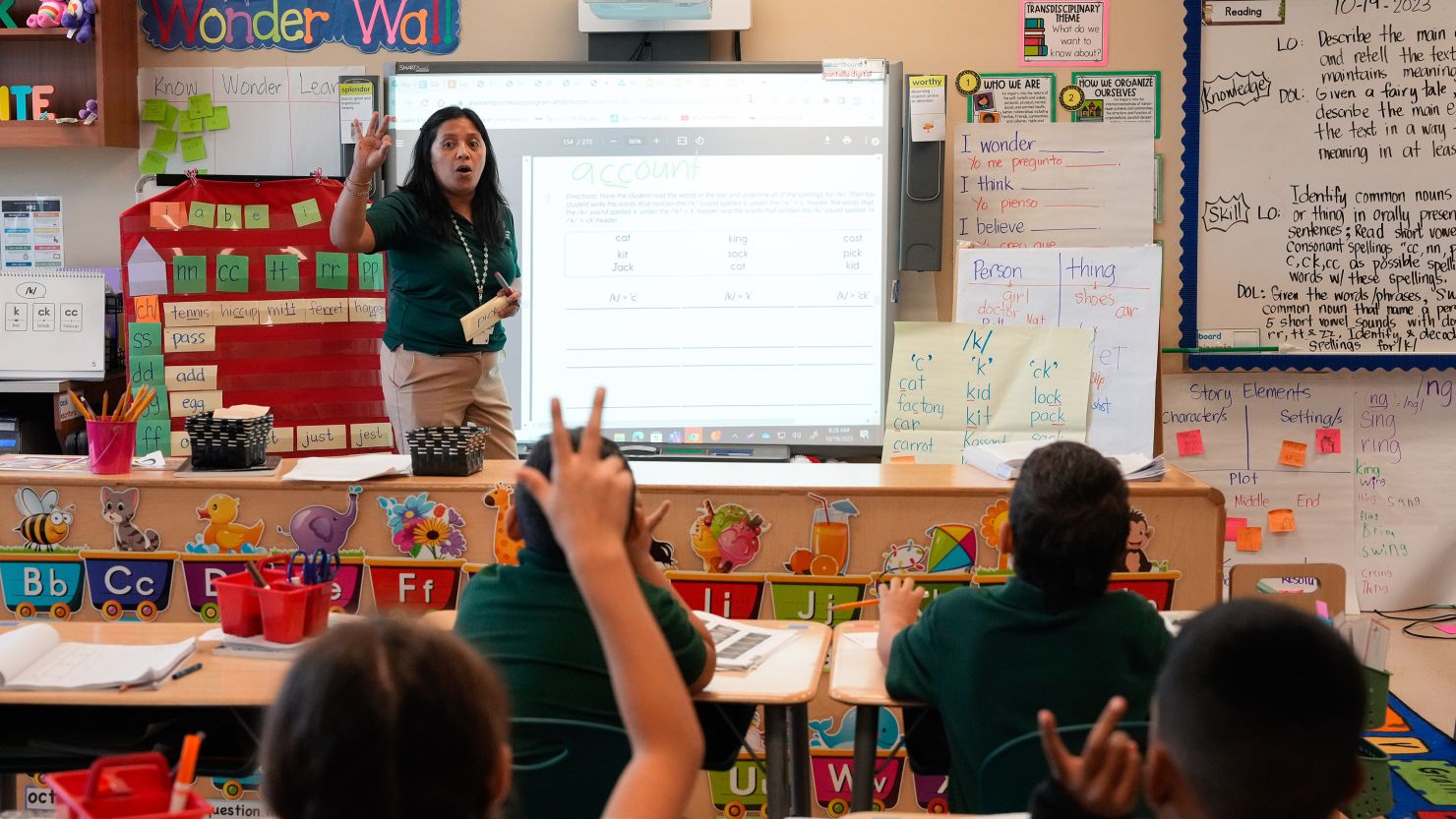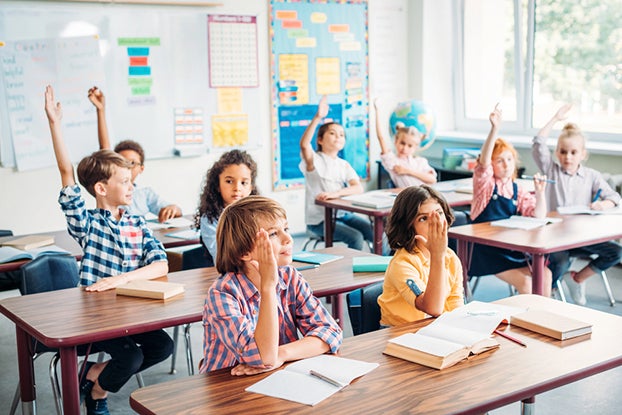Proven Kindergarten strategies for developing emotional intelligence
The Vital Duty of Preschool in Kid Growth: Truths and Insights for Moms and dads
Kindergarten offers as a crucial structure for kid advancement. It supplies organized very early understanding experiences that greatly influence cognitive, social, and emotional growth. Youngsters involve in tasks that improve language skills and important thinking while likewise learning to browse social communications. Understanding the effect of this formative phase is essential for parents. What particular benefits does kindergarten give, and exactly how can parents best support their youngsters throughout this critical time?
The Value of Early Knowing Knowledge
Many may take too lightly the value of early learning experiences, they play an essential function in forming a kid's cognitive, social, and psychological advancement. During these formative years, youngsters engage with their setting, obtaining language abilities and fundamental knowledge that set the phase for future understanding. Exposure to varied discovering tasks cultivates essential reasoning, imagination, and problem-solving capabilities.
Moreover, early understanding experiences aid youngsters establish self-regulation and resilience, outfitting them to face obstacles in advance. Involvement in organized learning atmospheres encourages interest and expedition, vital traits for scholastic success. These experiences likewise present kids to regimens and expectations, promoting a feeling of safety and belonging.
Study has actually shown that high quality very early education and learning can considerably influence lasting instructional results, minimizing the probability of discovering difficulties. By highlighting the relevance of early discovering, teachers and parents can better support kids within their full capacity, ultimately adding to their total wellness and future accomplishments.
Building Social Friendships and abilities
Structure social abilities and developing relationships are crucial elements of a child's advancement that frequently emerge from very early understanding experiences. In preschool, children take part in different activities that advertise interaction, team effort, and interaction. They find out to share, take turns, and work together, which are fundamental abilities for constructing partnerships.
Structured playtime and group tasks encourage children to navigate social dynamics, promoting an understanding of different viewpoints and the importance of compassion. As they communicate with peers, they exercise problem resolution and create settlement skills, vital for preserving relationships.
Moreover, these early social interactions aid children cultivate a feeling of belonging and area, which is necessary for their total health. By creating links with classmates, children not just boost their social skills however additionally gain confidence in their capacity to connect to others. Consequently, kindergarten acts as an essential platform for nurturing social advancement and friendship-building.
Establishing Psychological Intelligence
Exactly how do kids begin to recognize their own feelings and those of others? In the preschool setting, children participate in different activities that advertise psychological intelligence. Through narration, team, and play discussions, they learn to recognize and label their feelings. Educators frequently present principles such as empathy by motivating children to show on exactly how others might feel in different scenarios.
Role-playing exercises enable kids to exercise acknowledging psychological signs, fostering an understanding of social dynamics. Additionally, guided discussions concerning dispute resolution assist them navigate their psychological responses and create dealing approaches. By engaging with peers in organized atmospheres, kids obtain insights right into the psychological landscape of their schoolmates, which improves their capability to form purposeful partnerships.
Ultimately, kindergarten offers as an essential system for supporting emotional intelligence, outfitting kids with vital abilities for future social communications and emotional well-being.
Promoting Independence and Positive Self-image
In the preschool environment, children not just enhance their emotional knowledge yet likewise start this to cultivate self-reliance and self-confidence. This crucial developing phase enables children to choose, resolve troubles, and take responsibility for their actions. Involving in tasks that promote freedom, such as selecting their very own tasks or taking part in group projects, assists kids learn to trust their judgment and abilities.
As they navigate social interactions, kids get self-confidence in expressing their ideas and emotions. Kindergarten. Support from teachers and peers promotes a feeling of belonging, further improving self-confidence. Tasks that call for team effort and collaboration also show youngsters to value their contributions, enhancing their feeling of skills
Getting Ready For Future Academic Success
As youngsters participate in structured knowing experiences during preschool, they lay an important foundation for future scholastic success. This early educational stage introduces critical skills such as proficiency and numeracy, boosting cognitive advancement and cultivating a love for learning. Via interactive tasks, kids learn to follow instructions, work collaboratively, and address problems, every one of which are essential in greater scholastic setups.
Preschool supports social-emotional skills, allowing kids to handle their feelings, create compassion, and construct partnerships with peers. These abilities add considerably to a favorable class environment and reliable understanding.
Research shows that children who prosper in preschool are most likely to carry out well in later grades, demonstrating the long-lasting impact of very early education. Moms and dads play a considerable function in sustaining their youngster's kindergarten experience by enhancing knowing at home and motivating inquisitiveness, therefore preparing them for an effective scholastic journey in advance.
Often Asked Questions

What Should I Try to find in a Great Kindergarten Program?
A good kindergarten program address must stress play-based knowing, certified teachers, a secure atmosphere, a well balanced educational program, chances for social communication, and parental involvement. Assessing these aspects guarantees a nurturing area for kids's very early growth and development.
Just How Can I Help My Kid Change to Kindergarten?

What Prevail Challenges Children Face in Preschool?
Common obstacles children face in preschool consist of splitting up stress and anxiety, difficulty adjusting to structured routines, social abilities development, and taking care of brand-new partnerships. These problems can affect their general change and finding out experiences during this vital adjustment duration.
Exactly How Can Parents Assistance Preschool Knowing at Home?
Parents can support kindergarten discovering in the house by giving a structured regimen, click engaging in interactive reading, encouraging creative play, utilizing educational video games, and cultivating open communication about school experiences to reinforce knowing and build confidence.
What Is the Common Daily Set Up in Kindergarten?
A regular everyday routine in kindergarten includes morning circle time, organized discovering tasks, treat breaks, playtime, and story sessions, all created to promote social skills, creative thinking, and fundamental scholastic principles necessary for very early development.
In the kindergarten setup, kids involve in various tasks that promote emotional knowledge. As children engage in organized understanding experiences during preschool, they lay a crucial foundation for future scholastic success. Kindergarten supports social-emotional abilities, making it possible for kids to handle their feelings, create empathy, and build partnerships with peers. Study indicates that children who prosper in preschool are more likely to execute well in later grades, demonstrating the long-lasting effect of very early education. Typical challenges youngsters deal with in kindergarten consist of splitting up anxiousness, difficulty adjusting to structured routines, social abilities development, and taking care of brand-new partnerships.